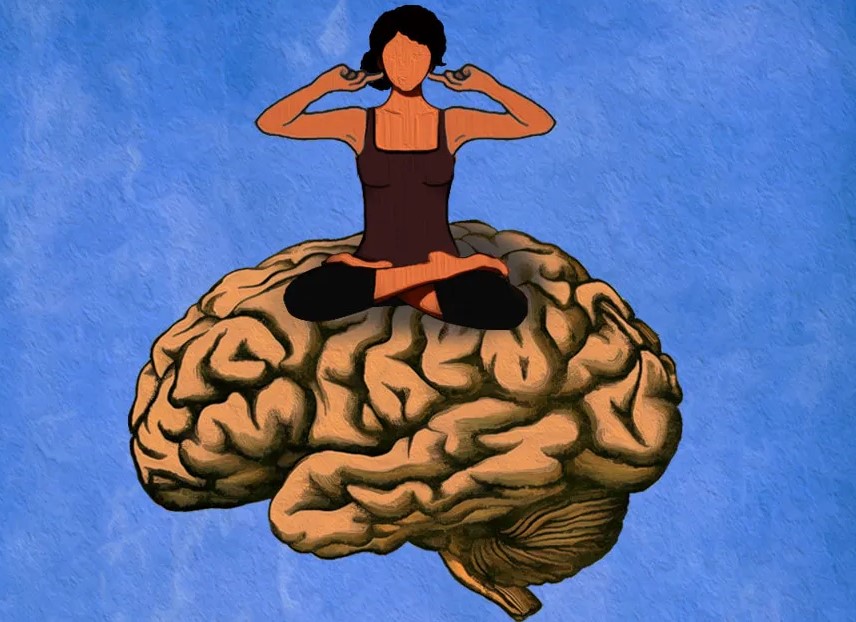What Olympians Know That You Don’t
When we think of Olympians, we often picture physical grit—endless reps, sweat-drenched training sessions, and superhuman strength.
But behind every gold medal is a brain that’s been trained to withstand pressure, bounce back from failure, and maintain razor-sharp focus under stress. Olympians don’t just train their bodies—they train their minds with precision and consistency (Harvard Business Review).
Mental preparation is often the hidden edge that separates the good from the great. Athletes routinely use techniques like visualization, mindfulness, and goal setting to optimize performance (Psychology Today).
Visualization isn’t just woo-woo—it’s been shown to activate the same brain regions as physical practice, making it a powerful mental rehearsal tool. When skier Lindsey Vonn mentally rehearsed each twist and turn of a course before racing, she was literally “training” her brain to succeed (NPR).
Another key factor is the development of mental toughness—a psychological edge that helps Olympians persevere through setbacks and maintain focus under intense pressure. This mental fortitude isn’t innate; it’s built through habit, coaching, and reflection (American Psychological Association).
The Science of Neuroplasticity
If you’ve ever believed you’re just “not a math person” or “bad at focusing,” here’s some good news: science strongly disagrees. Your brain isn’t fixed—it’s adaptable, moldable, and trainable. This incredible ability to change is called neuroplasticity, and it’s the foundation of all brain training (Harvard Medical School).
Neuroplasticity is the brain’s ability to rewire itself in response to new experiences, learning, and even deliberate practice. Just like muscles grow stronger with repeated exercise, neural pathways in your brain grow stronger the more you use them (National Institute of Neurological Disorders and Stroke).
For example, London taxi drivers have been found to develop larger hippocampi—the brain region linked to navigation and spatial memory—because of the intense memorization required for their job (Scientific American). That’s a real-life demonstration of neuroplasticity in action. The same principle applies to learning how to concentrate, manage distractions, or study smarter.
Even if studying has always felt like a chore, your brain can adapt and get better at it—especially if you train it with the right strategies. From practicing focused attention for short bursts to building routines that strengthen cognitive endurance, every small step counts toward building a more resilient, high-performing brain (Verywell Mind).
Step-by-Step Brain Training Routine
Just like Olympians have structured routines to build physical and mental endurance, you can follow a step-by-step system to train your brain for peak performance—even if you dread studying.
Warm-Up: Get in the Zone

This infographic from McMaster University breaks down the anatomy of the “perfect athlete,” highlighting the expert-backed physical, mental, and medical strategies Olympic athletes use to excel. Each body part is linked to a specific discipline—from sports medicine to psychology—emphasizing the science behind peak performance.
Before you jump into any mental task, it’s important to prepare your mind. Athletes don’t start sprints without stretching, and your brain works the same way. Start with a 2–5 minute mindfulness or deep breathing exercise—this calms your nervous system and signals your brain that it’s time to focus (Cleveland Clinic).
Techniques like box breathing or using guided meditations on apps like Headspace or Insight Timer can help lower anxiety and sharpen attention (Mayo Clinic). Think of it as your mental warm-up—simple, short, and incredibly effective.
Train with Micro Goals
Big tasks can overwhelm the brain, triggering procrastination. Instead, break down your study sessions into micro goals—specific, bite-sized targets that are easier to start and complete.
One proven method is the Pomodoro Technique, where you work for 25 minutes, take a 5-minute break, and repeat (Todoist).
Visualization & Affirmations
Elite athletes swear by visualization to rehearse success before it happens—and you can do the same. Spend 1–2 minutes visualizing yourself completing a study task with confidence or walking out of an exam feeling accomplished. This builds neural pathways that reinforce success and reduce fear (Psychology Today).
Pair this with positive affirmations like “I am focused,” “I can retain information easily,” or “I’m improving every day.” Research shows that self-affirmation activates the brain’s reward system and helps protect against stress (University of Pennsylvania). Over time, you’ll replace self-doubt with self-belief.
Fuel Like a Pro
Olympians know that nutrition and hydration are critical for peak performance—and the same goes for mental work. The brain is an energy-hungry organ, using up about 20% of the body’s calories. So feeding it right is essential (Harvard Health).
Brain foods like blueberries, walnuts, leafy greens, and omega-3 fatty acids support memory and concentration. Drinking enough water is just as important; even mild dehydration can impair cognitive function and mood (National Library of Medicine). Think of snacks as study fuel, not distractions.
Rest & Recovery
No Olympian trains nonstop—rest is where growth happens. Similarly, your brain needs rest to consolidate learning, form long-term memories, and prevent burnout. Schedule short breaks during your study sessions, and take longer breaks after 2–3 Pomodoro rounds (NIH).
Even more importantly, get enough sleep. Sleep is when your brain stores what you’ve learned and clears out toxins that accumulate during the day. One study even found that sleeping after studying improved recall by 20–40% (Sleep Foundation). Skipping rest is like skipping leg day—it just doesn’t work in the long run.
Hacking Motivation
Every time you complete a task, your brain releases a small amount of dopamine, reinforcing the action and making you more likely to repeat it (Cleveland Clinic). So instead of waiting to feel inspired, build momentum with tiny wins that keep the dopamine flowing.
One powerful way to do this is through gamification—the use of game-like elements such as points, levels, and challenges to make tasks more engaging. Apps like Habitica, Forest, or Study Bunny turn studying into a game, giving your brain little rewards that boost motivation (Forbes).
According to behavioral psychologist B.J. Fogg, creating a visual cue of success builds identity-based habits—meaning you’ll start to see yourself as someone who follows through (Behavior Design Lab, Stanford).
One study showed that people were 65% more likely to achieve a goal when they shared it with a friend and checked in regularly (American Society of Training and Development).
Finally, reframe the task. Instead of saying “I have to study,” try “I’m training my brain,” or “I’m leveling up.” This mental shift helps you focus on long-term growth rather than short-term discomfort (Harvard Business Review).
Tools and Tech That Can Help
These platforms support multimedia notes, tags, and linking, helping you connect concepts and stay organized across subjects (Notion, Evernote, OneNote).
If distractions are your kryptonite, focus-enhancing tools can be game-changers. Try Forest, where a virtual tree grows as long as you stay off your phone—or Cold Turkey, which blocks distracting sites for set periods of time (Forest App, Cold Turkey).
These tools show you information right before you’re about to forget it, helping transfer it into long-term memory efficiently (Anki, RemNote). Spaced repetition is the digital equivalent of high-performance memory training.
For those who struggle with time management, Toggl and Clockify are time-tracking tools that let you measure where your hours go and adjust your schedule for peak efficiency (Toggl, Clockify). Understanding your productivity patterns helps you build smarter routines, just like athletes analyze their training metrics.
Audio learners can also benefit from tools like Speechify and NaturalReader, which convert text into spoken word so you can review material on the go (Speechify, NaturalReader). This is especially useful during commutes, walks, or workout sessions—because brain training doesn’t always have to mean sitting still.
Finally, don’t underestimate the power of digital communities and accountability platforms. Websites like Study Together, Focusmate, or even specific subreddits like r/GetStudying provide study partners, virtual co-working sessions, and support systems that keep you on track (Study Together, Focusmate, r/GetStudying).
Anyone Can Train Like a Champion
What Olympians understand better than anyone is this: success isn’t about talent alone. It’s about showing up, following a system, and trusting the process. The same applies to learning, productivity, and personal growth.
Neuroscience shows that the brain is remarkably adaptable. Through a process called neuroplasticity, your brain rewires itself in response to how you think, what you learn, and how you practice (Verywell Mind).

Titled “8 Ways to Focus Like an Elite Athlete,” this visual guide by Christian Rebernik offers practical mental strategies like visualization, breathing techniques, and simple routines to help anyone sharpen their focus and stay calm under pressure, just like top athletes.
And guess what? You don’t need hours of study or bursts of inspiration to get there. The truth is, consistency beats intensity. A 15-minute focused session done daily is more effective than a 3-hour cramming marathon once a week (APA). Olympians don’t train non-stop—they train smart, and you can too.
As James Clear, author of Atomic Habits, says: “You do not rise to the level of your goals. You fall to the level of your systems.” (James Clear)
And now, you’ve got the system. Start small. Stay consistent. Your gold medal mindset is just around the corner.
Frequently Asked Questions (FAQs)
How can I train my brain if I have a short attention span?
Start with short, focused sessions using techniques like the Pomodoro method (25 minutes of study followed by a 5-minute break). Gradually increase duration as your mental stamina improves.
Is brain training only useful for students?
Not at all. Brain training helps anyone—from professionals to creatives—boost memory, focus, decision-making, and learning capacity.
What are the best foods to boost brain performance?
Nutrient-rich foods like blueberries, fatty fish, eggs, nuts, and dark leafy greens support memory, focus, and mood.
Can exercise really improve brain power?
Yes. Physical activity increases blood flow to the brain, enhances memory, and promotes the growth of new neurons.
How do Olympians stay mentally strong under pressure?
They use routines, visualization, mindfulness, and consistent practice to build mental resilience—tools anyone can adopt.
What’s the best app for blocking distractions while studying?
Apps like Forest, Cold Turkey, and Freedom are great for eliminating digital distractions and boosting productivity.
Do I need to meditate to train my brain like an Olympian?
No, but meditation is highly recommended. It helps with focus, emotional regulation, and stress reduction.
Is gamifying my study habits actually effective?
Yes. Gamification boosts dopamine levels and makes tasks more engaging, increasing your motivation to keep going.
How much sleep do I need for optimal brain performance?
Most adults need 7–9 hours of quality sleep. Sleep consolidates memories and repairs the brain.
Can I train my brain without using technology?
Absolutely. You can use paper-based journaling, habit tracking, flashcards, and deep reading—all effective non-digital strategies.
What’s the difference between discipline and motivation?
Motivation is fleeting. Discipline is built through consistent habits and systems, which Olympians rely on more than motivation.
How do I create a study routine that sticks?
Start small, be consistent, tie it to an existing habit (habit stacking), and track your progress visibly.
Why is visualization such a powerful tool?
Visualization activates similar brain areas as actual practice, reinforcing confidence and improving performance.
Are brain games like Lumosity worth it?
They can help with specific skills, but real-world brain training (like learning a new skill or language) tends to have longer-lasting benefits.
How do I stay motivated if I hate studying?
Make it meaningful—tie it to a personal goal, use rewards, and break it into bite-sized, achievable tasks.
Can music help me focus while studying?
Yes, especially instrumental or ambient music. Avoid lyrics if they distract you. Try lo-fi or classical playlists.
How do I measure progress in brain training?
Track improvements in recall, focus duration, or task completion. Apps or journals can help visualize your gains.
What’s the fastest way to improve memory?
Use spaced repetition and active recall. These scientifically-backed methods help you remember information long-term.
Is multitasking bad for brain performance?
Yes. It divides your attention, reduces efficiency, and makes learning less effective. Focus on one task at a time.
Can anyone train their brain like an Olympian, even without natural talent?
Yes. Success depends more on consistent practice, systems, and mindset than on raw talent. Everyone can build a high-performing brain.
“Champions aren’t made in the gyms. Champions are made from something they have deep inside them—a desire, a dream, a vision.”
— Muhammad Ali





